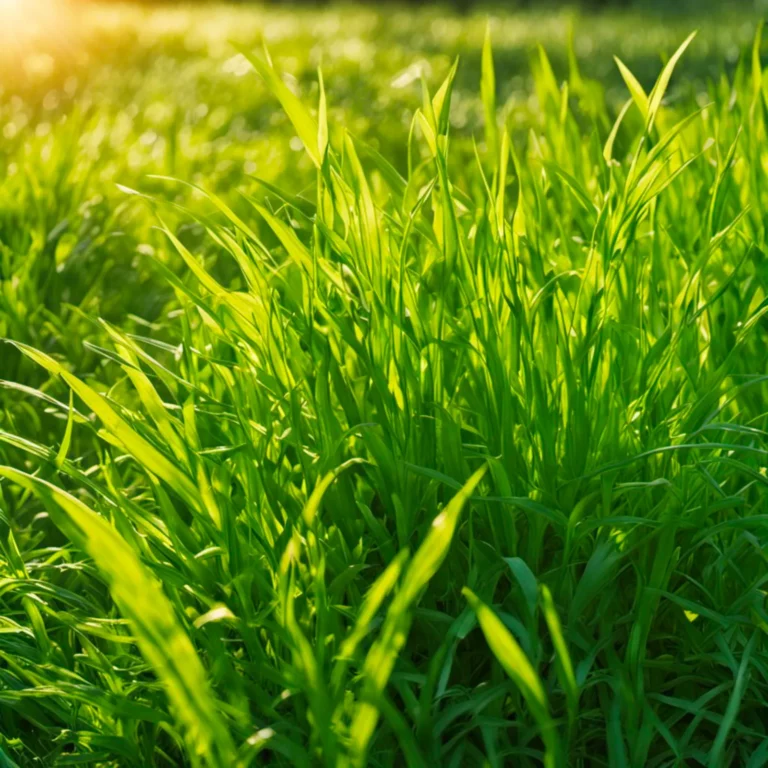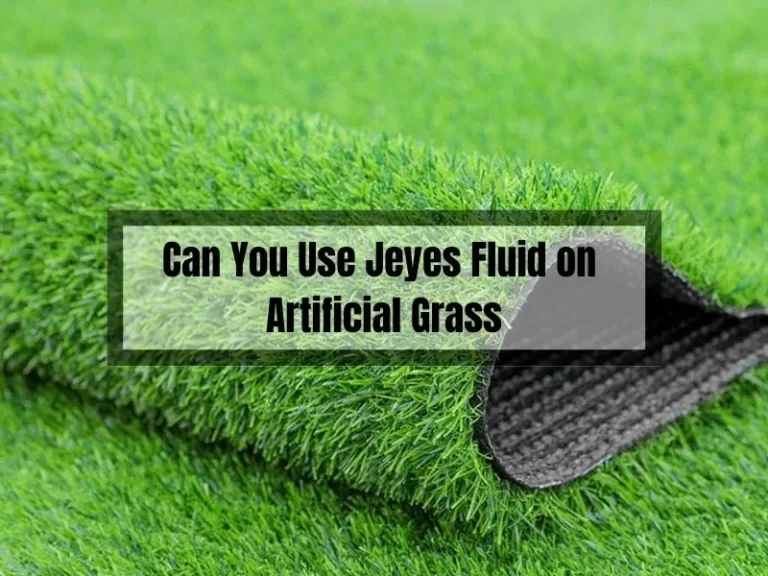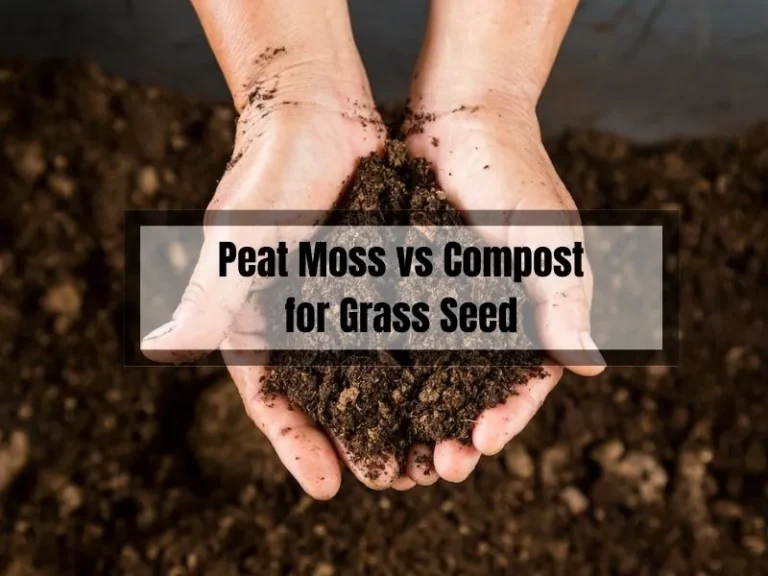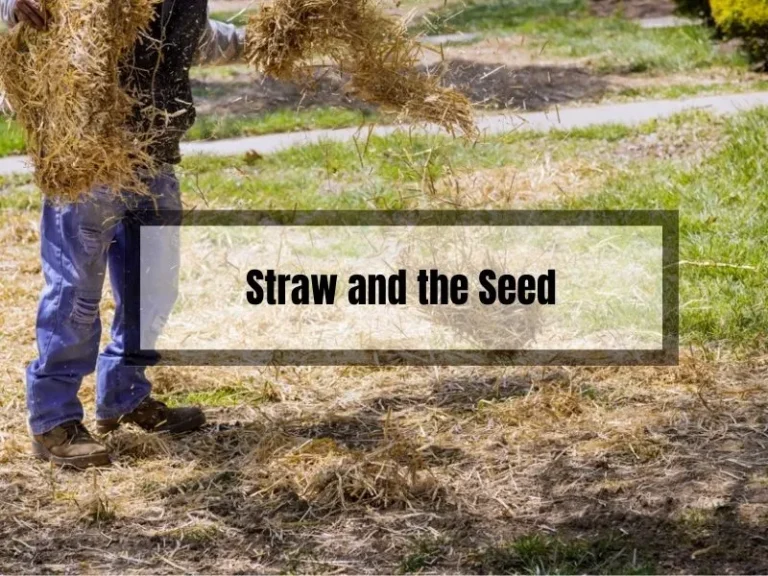You Won’t Believe How Boiling Water and Salt Can Crush Weeds! (Step-by-Step Guide)
Tired of persistent weeds? Try using boiling water and salt – a natural, chemical-free method to kill them effectively.
This technique dehydrates and disrupts weed cells, suitable for both annual and perennial weeds with shallow roots. Identify target weeds before starting.
Key Takeaways
- Killing weeds with boiling water and salt is a natural and effective method that doesn’t involve harmful chemicals.
- This method works best on annual and perennial weeds with shallow roots, but it’s important to identify the target weeds before starting.
- While this method can be effective, it’s important to take precautions and safety measures to avoid harming yourself or your plants.
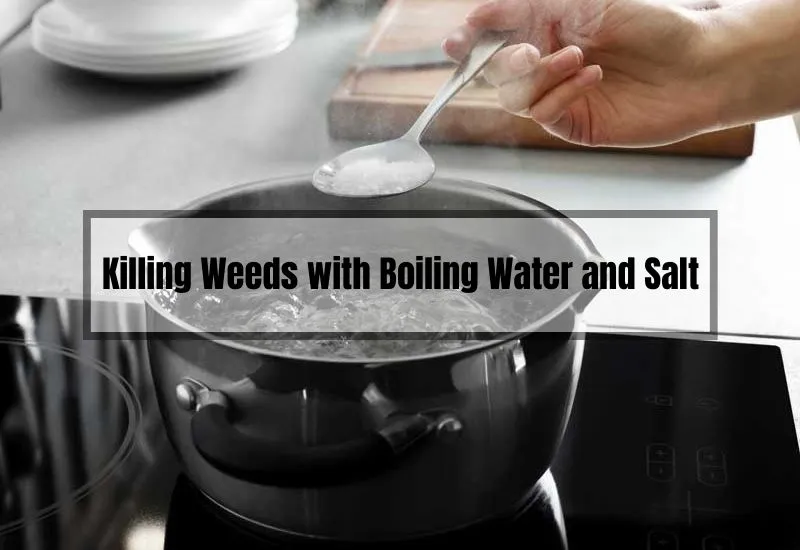
Killing Weeds with Boiling Water and Salt
Are you tired of pesky weeds taking over your beautiful garden? Well, you’re in luck because killing weeds with boiling water and salt is a natural and effective way to get rid of those unwanted plants.
Salt works to kill weeds by dehydrating the plants and disrupting the internal water balance of the plant’s cells. Boiling water, on the other hand, scalds the weed’s leaves and stems, causing them to wither and die.
To use this method, simply bring a pot of water to a boil and add a generous amount of salt. Stir until the salt dissolves, then carefully pour the mixture over the weeds. Be sure to avoid any nearby plants you want to keep, as the boiling water and salt can harm them too.
It’s important to note that while this method is effective, it may not completely eradicate the weeds. You may need to repeat the process a few times to fully get rid of them.
Here are some tips to keep in mind when using boiling water and salt to kill weeds:
- Use a large enough pot to hold a significant amount of water and salt.
- Be careful when pouring the boiling water and salt mixture, as it can cause burns.
- Avoid using this method on windy days, as the boiling water can splash onto nearby plants or people.
- Wear protective clothing, such as long sleeves and gloves, to avoid getting burned by the boiling water.
Overall, killing weeds with boiling water and salt is a natural and effective way to keep your garden weed-free. Give it a try and see the results for yourself!
Step by Step Guide to Killing Weeds
Weeds can be a real nuisance in your garden or yard. They can take over your plants, steal their nutrients, and make your garden look unkempt.
If you’re looking for a natural way to get rid of weeds, then boiling water and salt might be the solution you’re looking for. Here’s a step-by-step guide to help you kill weeds using boiling water and salt.
Step 1: Prepare the Boiling Water
The first thing you need to do is prepare the boiling water. You’ll need to bring a pot of water to a boil on your stove.
The amount of water you need will depend on the size of the area you want to treat. Make sure you use a pot that’s large enough to hold the water you need.
Step 2: Add Salt to the Boiling Water
Once the water has come to a boil, you’ll need to add salt to it. The amount of salt you need will depend on the size of the area you want to treat.
A good rule of thumb is to use one cup of salt for every gallon of water. Stir the salt into the boiling water until it dissolves.
Step 3: Pour the Boiling Water and Salt Mixture onto the Weeds
Carefully pour the boiling water and salt mixture onto the weeds you want to kill. Be careful not to spill any of the mixture on your other plants, as it can kill them too.
Make sure you pour the mixture directly onto the weeds, as it works as a contact herbicide.
Step 4: Wait and Repeat
Wait for a few days to see if the weeds have died off. If they haven’t, you may need to repeat the process.
Be careful not to pour the boiling water and salt mixture onto the same spot twice, as it can damage the soil and make it difficult for your plants to grow.
Step 5: Dispose of the Weeds
Once the weeds have died off, you’ll need to dispose of them properly. You can either compost them or throw them away. If you choose to compost them, make sure you add them to a hot compost pile, as the heat will help break them down quickly.
Killing weeds with boiling water and salt is an effective and natural way to get rid of weeds in your garden or yard. It’s important to be careful when pouring the mixture onto the weeds, as it can kill your other plants too. With a little bit of patience and persistence, you can have a weed-free garden in no time.
Precautions and Safety Measures
When dealing with boiling water and salt, it is important to take certain precautions to ensure your safety and the safety of those around you. Here are some safety measures you should take when using boiling water and salt to kill weeds:
Use Heat-Resistant Gloves
Boiling water can cause serious burns, so it is important to use heat-resistant gloves when handling it. These gloves will protect your hands and arms from burns and scalds.
Avoid Splashing or Spills
When pouring boiling water, be extra careful to avoid splashing or spills. This can cause serious burns and damage to your skin. Make sure to pour the boiling water slowly and carefully.
Keep Children and Pets Away
Boiling water can be extremely dangerous, especially for children and pets. Keep them away from the area where you are using boiling water and salt to kill weeds.
Don’t Use on Sensitive Plants
Boiling water and salt can be harmful to sensitive plants, so make sure to avoid using it on them. Instead, use it on weeds that are growing in areas where other plants are not nearby, such as in cracks in patios or sidewalks.
Apply Directly to Weeds
When using saltwater solutions, apply it directly to the foliage of the weed. Avoid soaking the roots with the mixture to protect the surrounding soil and plants.
Don’t Overuse
Repeatedly pouring boiling water over your weeds can damage the roots of the surrounding plants and also kill off the microbes in your soil. This can weaken roots and encourage plant diseases, so avoid overusing boiling water and salt.
By taking these precautions and safety measures, you can effectively kill weeds using boiling water and salt without putting yourself or others in danger.
Impact on Soil Health
When it comes to killing weeds with boiling water and salt, many people are concerned about the impact on soil health. While this method is effective at killing weeds, it can also have unintended consequences for your soil.
One of the main concerns is that salt can accumulate in the soil over time, which can lead to soil salinization. This occurs when the salt concentration in the soil becomes too high, making it difficult for plants to absorb water and nutrients. As a result, the soil becomes less fertile and can even become toxic to plants.
Another concern is that repeatedly pouring boiling water over your weeds can damage the roots of the surrounding plants and also kill off the microbes in your soil. Microbes play an important role in soil health by breaking down organic matter and releasing nutrients that plants can absorb. Killing off these microbes can lead to a decrease in soil fertility over time.
However, if you use salt and boiling water sparingly and in the right way, you can minimize the impact on your soil health. Here are some tips:
- Use salt and boiling water only on weeds that are growing in areas where you don’t want any plants to grow, such as cracks in your driveway or sidewalk.
- Avoid using salt and boiling water in areas where you want plants to grow, such as your lawn or garden.
- Use a small amount of salt and boiling water, and avoid using it repeatedly in the same area.
- Consider using alternative weed control methods, such as pulling weeds by hand or using organic herbicides.
By following these tips, you can effectively kill weeds without harming your soil health. Remember, a healthy soil is the foundation of a healthy garden, so it’s important to take care of it.
Alternative Weed Control Methods
While boiling water and salt are effective ways to kill weeds, there are other methods you can try that may work better for your specific situation. Here are some alternative weed control methods:
Mulching
Mulching involves covering the soil with a thick layer of organic material, such as leaves, straw, or wood chips. T
his can help prevent weed growth by blocking sunlight and reducing soil moisture. Mulching is especially effective in garden beds and around trees and shrubs.
Hand Weeding
Hand weeding involves pulling weeds out by hand or using a hoe or other tool to remove them.
This method is labor-intensive but can be effective for small areas or for removing individual weeds. Make sure to remove the entire root of the weed to prevent regrowth.
Corn Gluten Meal
Corn gluten meal is a byproduct of the corn milling process and can be used as an organic weed killer.
It works by inhibiting the germination of weed seeds, but it must be applied at the right time to be effective. Corn gluten meal can also be used as a fertilizer and is safe for use around pets and children.
Vinegar
Vinegar can be used as a natural weed killer, but it is important to use caution when applying it as it can also damage desirable plants.
Mix vinegar with water and a small amount of dish soap to create a spray that can be applied to weeds. This method is best used on small weeds or as a spot treatment.
Boiling Water
Boiling water can be used to kill weeds on sidewalks, driveways, and other hard surfaces. Simply pour boiling water directly onto the weeds to kill them. Be careful not to pour boiling water onto desirable plants as it can also damage them.
Chelated Iron
Chelated iron is a natural weed killer that works by causing iron toxicity in plants. It is safe for use around pets and children and can be applied as a spray or granular fertilizer. However, it is important to follow the instructions carefully as too much can also damage desirable plants.
Remember, when using any weed control method, it is important to read and follow the instructions carefully to ensure the safety of yourself, your family, and your pets.
Additional Tips for Success
Pre-treatment Techniques
Here are a couple of pre-treatment techniques that can enhance the effectiveness of the boiling water and salt method:
- Mow or trim the weeds before treatment. This will help the solution reach the roots more easily.
- Use a weed puller to remove larger weeds. This will make the application process much smoother.
Combining with Other Methods
To boost the weed-killing power of the boiling water and salt method, you can combine it with other natural techniques:
- Vinegar can be used as an alternative or additional ingredient. It’s known for its excellent weed-killing properties.
- Add a surfactant or dish soap to the solution to improve penetration. This will help the solution stick to the weeds and increase its effectiveness.
- Potential Drawbacks and Limitations
Soil Salinity
One significant concern is the impact on soil health. An excessive amount of salt can inhibit plant growth and reduce soil fertility.
To minimize damage to your garden, apply the solution selectively and use the minimal salt concentration required to kill the weeds.
Frequently Asked Questions (FAQs)
What are the benefits of killing weeds with boiling water and salt?
The primary benefits of using boiling water and salt to kill weeds include its non-toxic nature, cost-effectiveness, and environmentally friendly approach. This method provides immediate results, making it an appealing alternative to harsh chemical weed killers.
How do I prepare the boiling water and salt mixture for killing weeds?
To prepare the weed-killing solution, mix 1 cup of salt (table salt, rock salt, or Epsom salt) per gallon of boiling water. You may need to adjust the ratio depending on the type and density of the weeds you’re treating. Always handle boiling water with care and wear heat-resistant gloves for safety.
When is the best time to apply the boiling water and salt solution to weeds?
The optimal time to apply the boiling water and salt solution is either early morning or late evening, especially on warm, sunny days. This timing ensures better absorption and increases the effectiveness of the treatment.
Can I use vinegar instead of salt to kill weeds with boiling water?
Yes, vinegar can be used as an alternative or additional ingredient in the boiling water solution. Its acetic acid content makes it a potent weed killer. You can also combine vinegar with salt to enhance the weed-killing effectiveness.
What types of weeds can be effectively killed using the boiling water and salt method?
Boiling water and salt are most effective against annual weeds and perennial weeds with shallow roots. However, this method may not be as effective for deep-rooted perennial weeds or weeds near desirable plants.
Conclusion
In conclusion, the boiling water and salt method is an efficient, eco-friendly way to maintain a pristine garden. By thoughtfully preparing and applying the solution, you can enjoy remarkable results without harsh chemicals.
Keep in mind the benefits, such as its non-toxic nature, cost-effectiveness, and immediate effects, as well as potential drawbacks like soil salinity and safety concerns. By exercising caution and using the technique selectively, you can mitigate these risks.
Give this budget-friendly, environmentally responsible approach a try, and with persistence, you’ll achieve a weed-free garden to be proud of. Happy gardening!
Related Posts:


